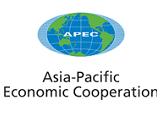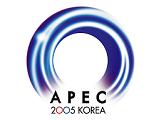Japan submitted a proposal for the continuation of its training efforts
aimed at staff in competition and competition-related authorities. The current
project, �PEC Training Course on Competition Policy, comprises a tentative
schedule of five training courses to be held once a year from 2005 to 2009.
The project will be more focused and narrower in scope than the �PEC Training
Program on Competition Policy��. The five training courses will be held in
The Philippines, Thailand, Malaysia and Indonesia, and discussions will
focus on the following issues: abuse of dominant position, organization
and function of competition agencies, mergers, capacity building for effective
enforcement, cartels, and competition policy development, among others.
This initiative will contribute to �PEC Principles to Enhance Competition
and Regulatory Reform��, which was presented at the CPDG and Strengthening
Economic Legal Infrastructure Coordinating Group Meeting. This project has
also been a response to the �tructural Reform in APEC economies�� and �PEC
Structural Reform Action Plan�� adopted by APEC Ministers in their 2003 Meeting,
and by Leaders in the �eaders�� Agenda to Implement Structural Reform (LAISR)��,
in 2004.

